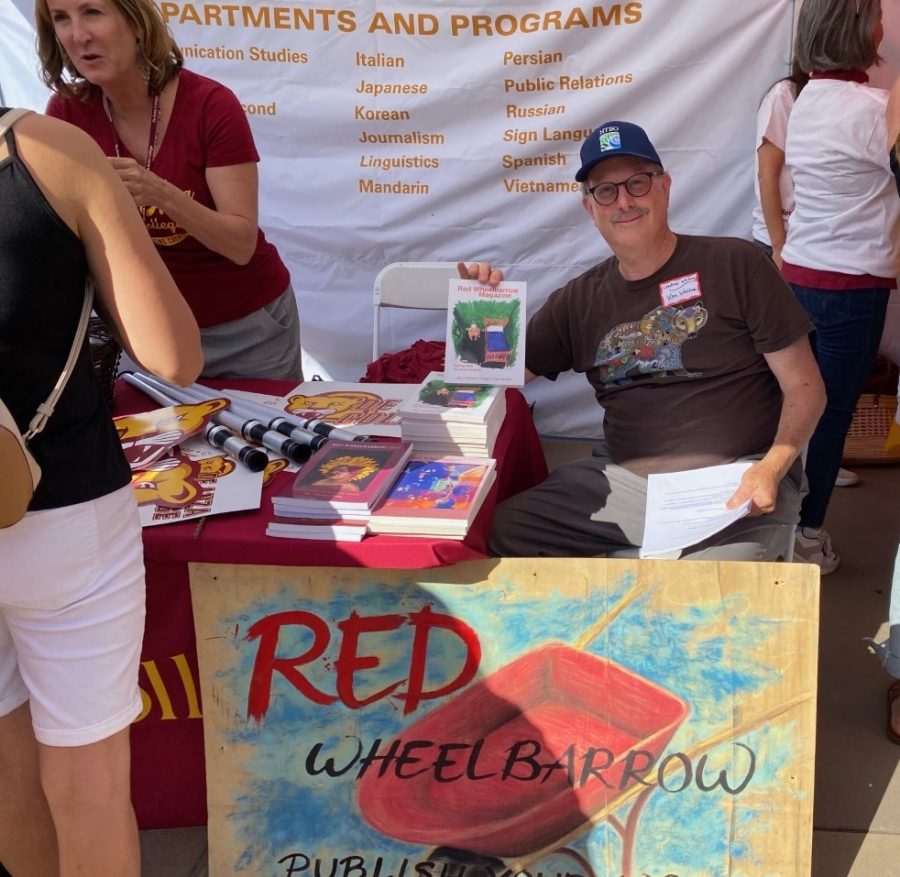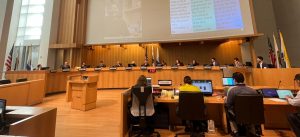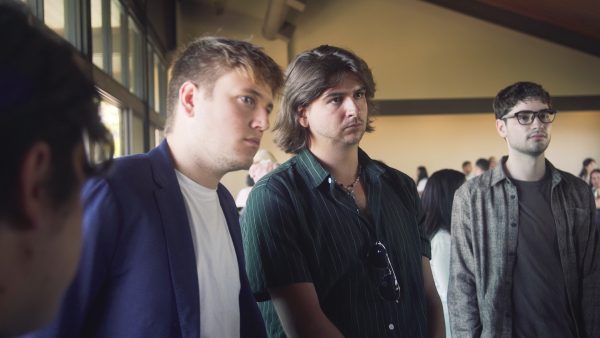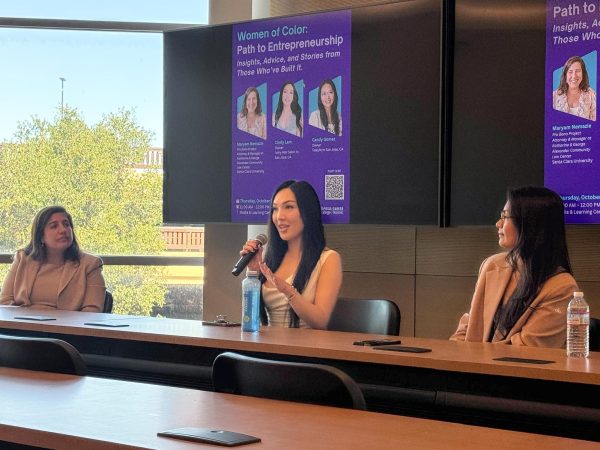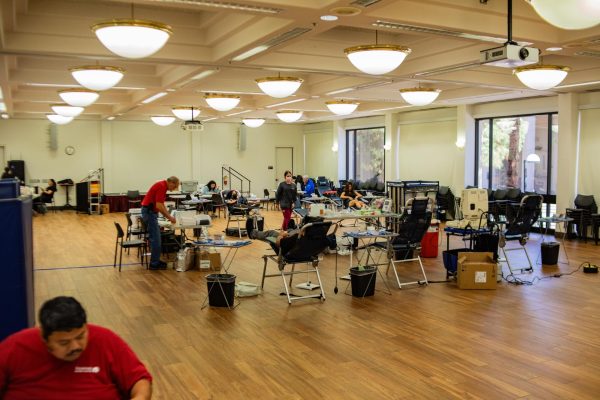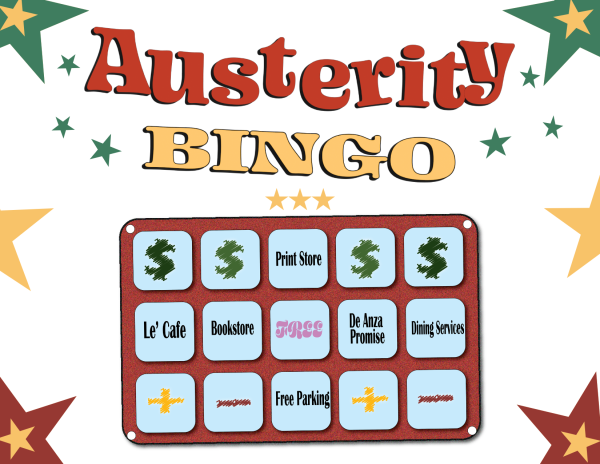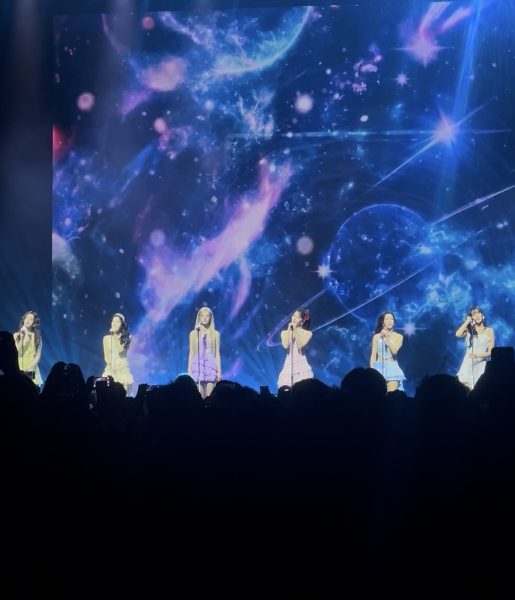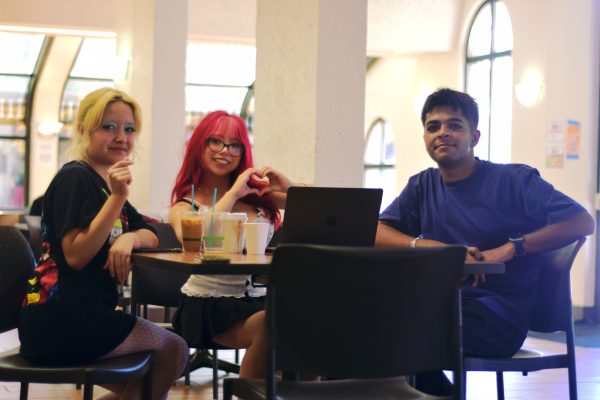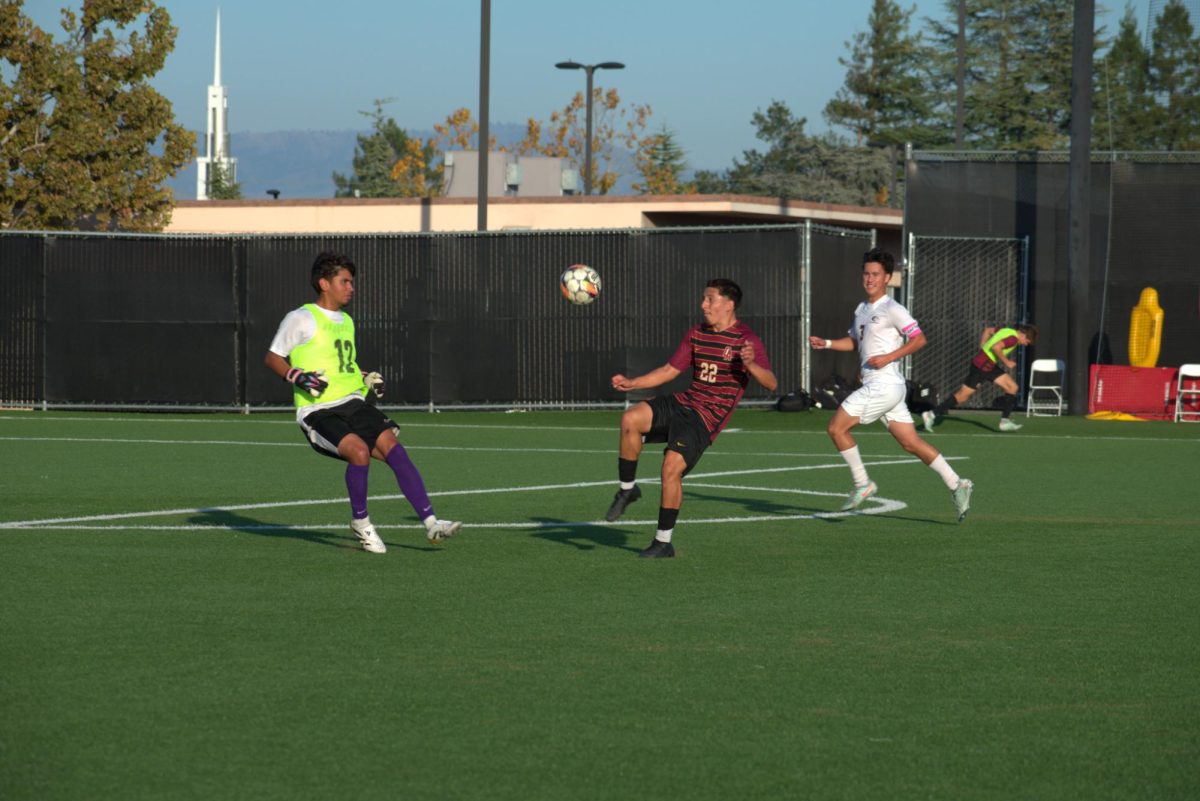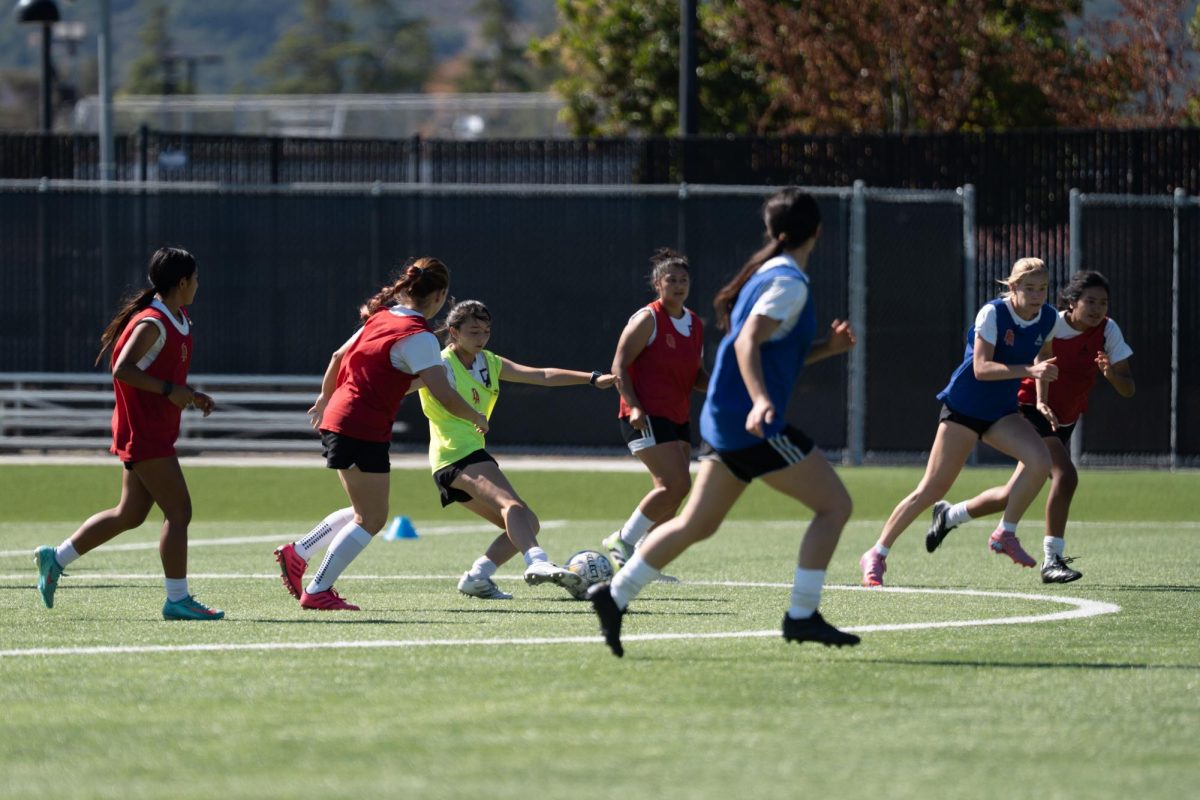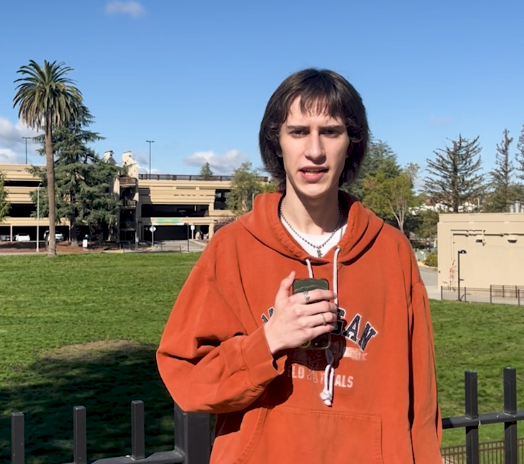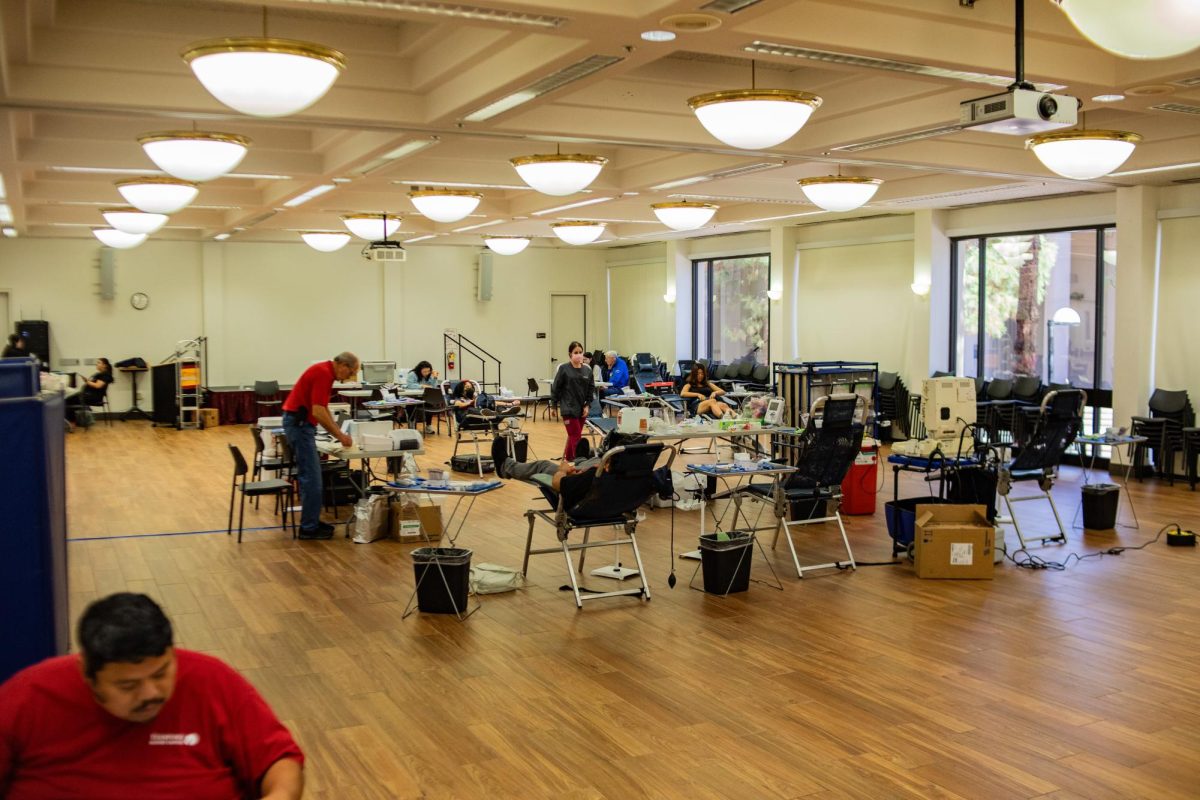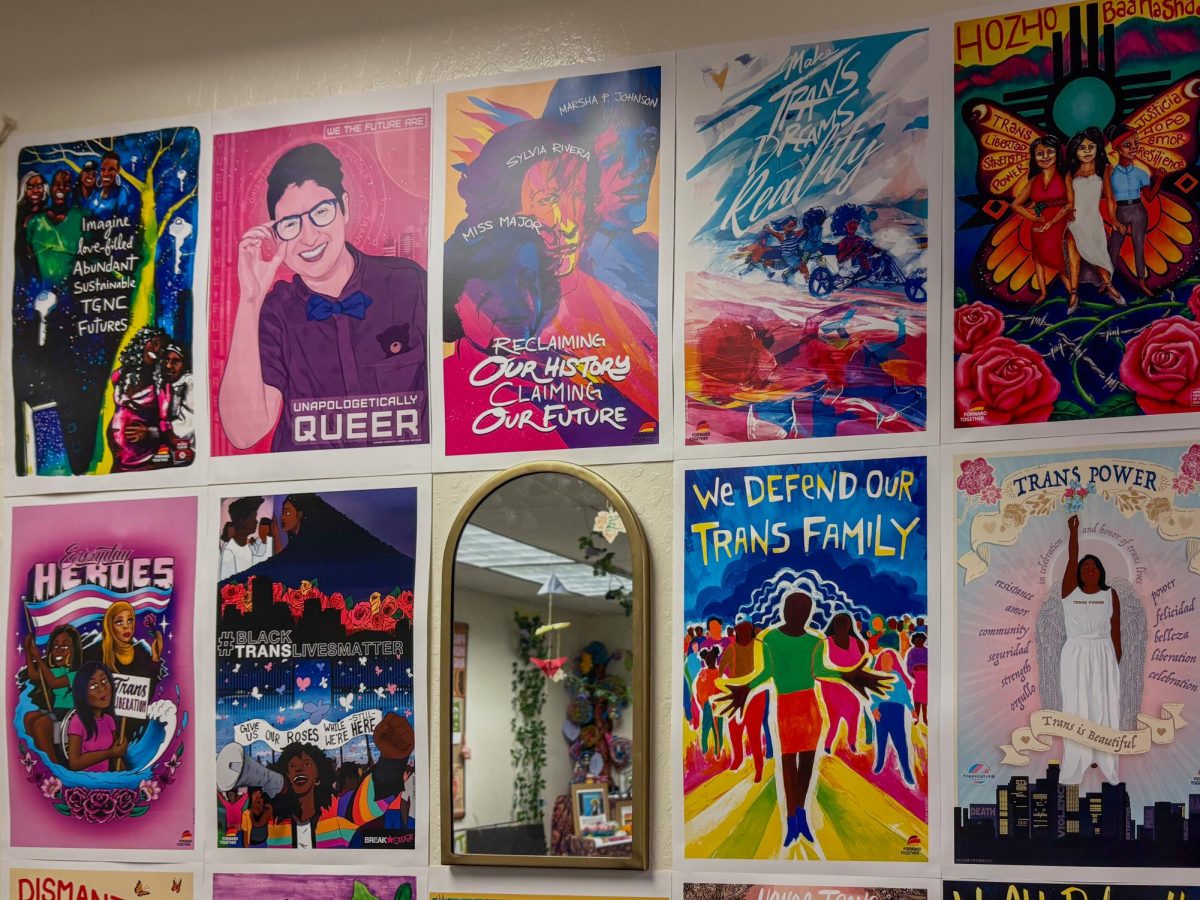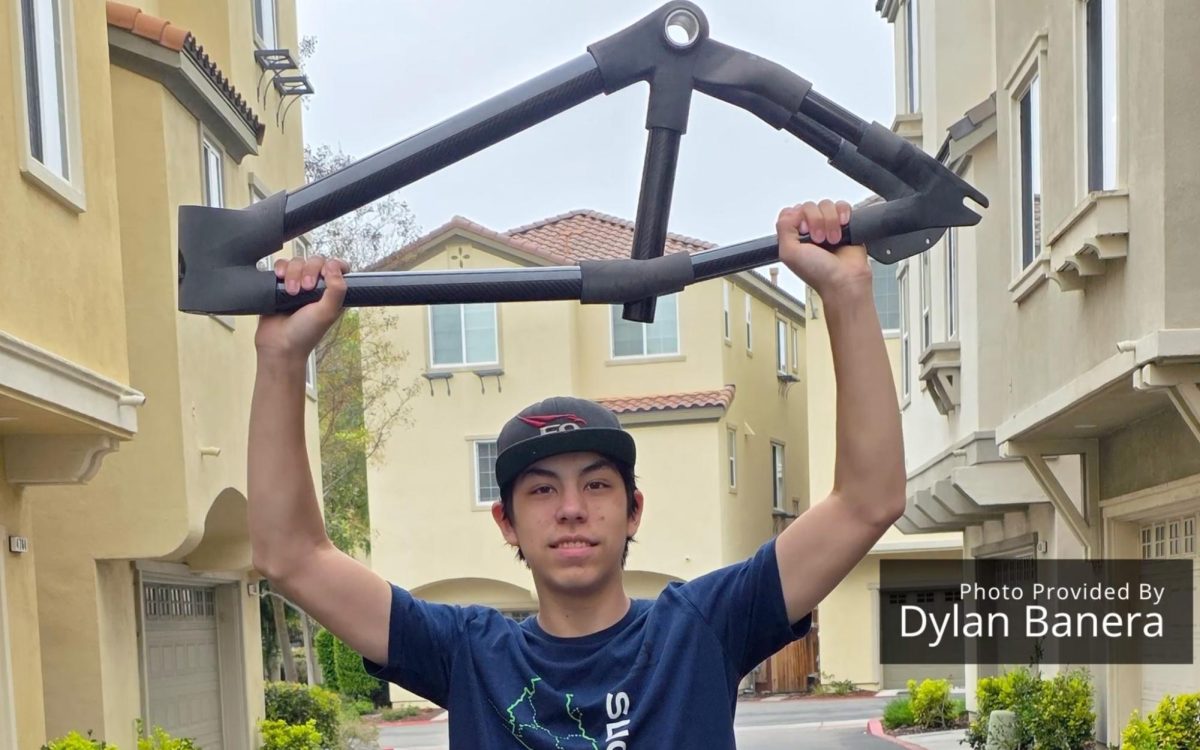‘The Red Wheelbarrow’: Now open for submissions and class registration
Dean of Language Arts Kristin Skager (left) with Professor Ken Weisner promoting the Red Wheelbarrow at De Anza College’s Welcome Day in 2022 (Photo Courtesy by Ken Weisner).
March 27, 2023
De Anza College’s literary magazine The Red Wheelbarrow, which has been running since the 1960’s, is now open for registration in the upcoming spring quarter. Originally entitled “Bottomfish,” and later renamed “The Red Wheelbarrow” after a poem by William Carlos Santos, it publishes twice a year: The National Edition in the fall, open to everyone worldwide, and The Student Edition in the spring, open to all De Anza students.
Jennifer Pakethmen, English professor and creative writer, will be the next adviser of The Student Edition of the magazine this year.
“The Red Wheelbarrow is the publication (of creative) writing, nonfiction and artwork from all De Anza students past, present and hopefully future,” Pakethmen said.
Pakethmen will be working with English professor and poet Kenneth Weisner who has been advising both editions of The Red Wheelbarrow for 20 years.
“These magazines have been around for 50 years,” Weisner said. “(The Red Wheelbarrow) includes a total variety of the ideas to include a diversity of De Anza.”
He also noted that the National Edition also sponsors The Red Wheelbarrow Prize for Poetry scholarship from a partnership with the Poetry Center of San Jose, which offers $1,000, $500 and $250 prizes.
“We continue to give our scholarships every year to the best writers, poets and artists on campus, from outside judges,” Weisner said.
For the springtime Student Edition, submissions are judged anonymously by De Anza students who join the course “EWRT 68A” or “68AX” titled Literary Magazine, Student Edition, with no prior experience needed.
“Students are really in charge,” Pakethmen said. “There’s a democratic system and students all vote for their choices to go into the magazine. So it’s very much a student product.”
Students also have a say in what they want to edit within the magazine specifically.
“If you join the class, you would be choosing your area of interest,” Pakethmen said. “This ranges from copy editing to digital book design or magazine management and more.”
It is also a resource for students to build vital skills, such as learning how to collaborate with a team, which Weisner and Pakethmen both said is a great experience to showcase to future employers.
“You can put them on your resume, not just on your transcript,” Weisner said. “Your name is in the book or on the byline. It’s like you have a job.”
Dean of Language Arts Kristin Skager has been a long-time advocate of The Red Wheelbarrow on the De Anza campus.
“Artists are essential, not only to society and culture, but to college campuses,” Skager said. “It is the way to discover ourselves and discover our community and it can also be a historical document that shows what your lives as students were like.”
When teaching English, Skager would both promote the magazine and encourage her own students to submit their work.
“It is a way for individual students to feel a sense of community and bonding, but also for us to have a sense of pride,” Skager said. “(The Red Wheelbarrow) reflects our students (and) exposes us to student voices.”
Skager also spoke about the decreasing enrollment within De Anza following the pandemic, and the stricter state mandates on which classes De Anza can offer based on enrollment, which can threaten the involvement of The Red Wheelbarrow.
“We need to have another renaissance in that love and that cultural importance of the English major,” Skager said. “The writers are artists and… the students that submit their writing (are) telling the story that is providing truth about the culture.”
Weisner agreed and emphasized the importance of having something that creates connection through art.
“I just really want to have these programs survive,” Weisner said. “The arts connect people. It creates diverse communities that people on the margins can feel connected to and heal themselves and communicate about their suffering. It’s a shared spiritual life (for) people who are so different (to) connect.”
Skager, Pathkemen and Weisner encourage anyone interested to join the upcoming spring class and send their work to [email protected] during the submission period.
“All students are full human beings with expressive, creative capabilities,” Pakethmen said. “Please join. Please submit. Please support. This is your magazine. It belongs to you guys.”



